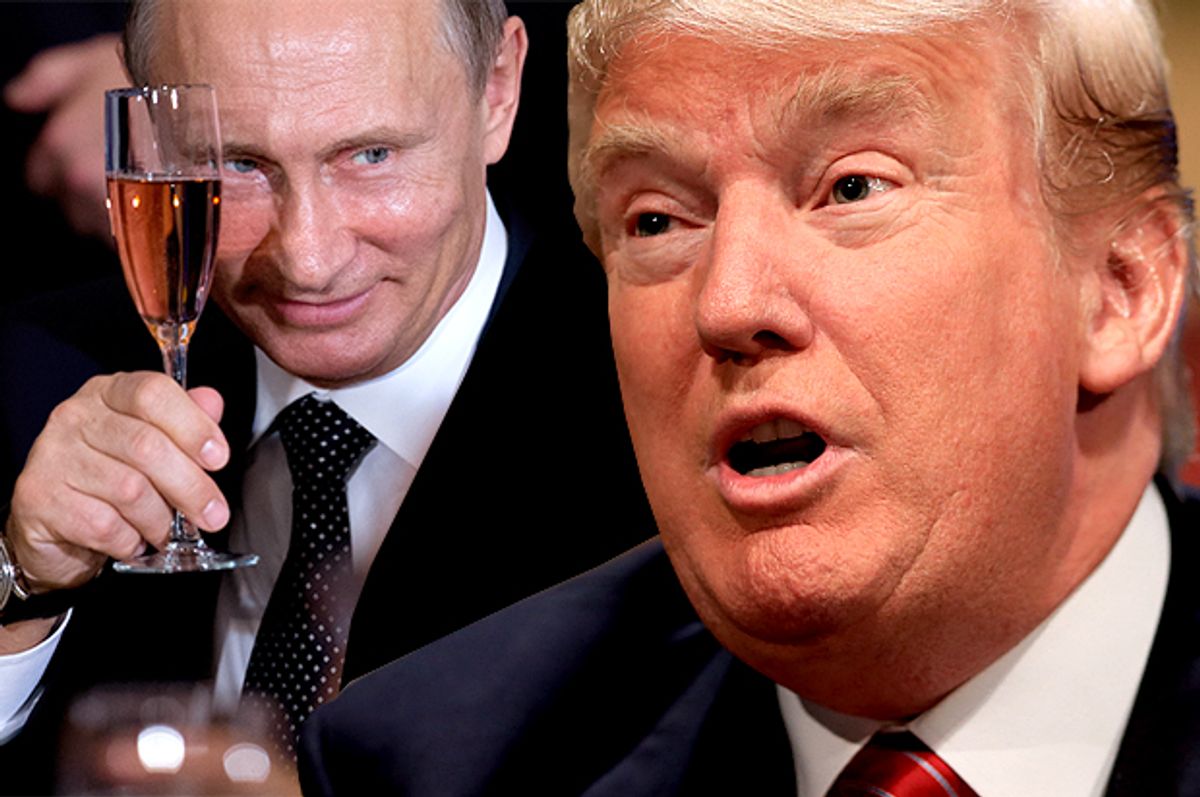Tuesday, many Americans will head to the polls in a U.S. economy that is on much firmer footing than it was eight years ago amid one of the worst economic crises since the Great Depression. Despite the slow pace of post-recession recovery, by most measures Americans are better off today than they were when President Barack Obama took office in January 2009.
At the same time, there’s been a growing discontent about the direction the country is going. Polls consistently show that a majority of Americans don’t believe the country is headed in the right direction. This discontent has helped propel Republican candidate Donald Trump closer to the White House than his new luxury hotel five blocks away.
Recently, hundreds of economists warned that Trump has lied or misled the public on several key economic and trade issues, and that he would be a “dangerous, destructive choice for the country,” which makes him a perfect candidate for his “new best friend,” Russian President Vladimir Putin. Time and again over the years Trump has showered praise on Putin, claiming that the Russian leader has been good for his country and its image on the world stage – even after Russia’s Cold War-like annexation of the Crimean Peninsula in 2014, its proxy war with pro-Russia militants in Ukraine and its active support for the regime of Bashar al-Assad in Syria.
For all of Trump’s talk about Russia beating the U.S. in the geopolitical arena, about Putin’s “great job” in rebuilding his country, economic indicators tell a different story. Under Putin, the Russian economy is in shambles. Putin's mismanagement has created an oligopoly and his aggressive foreign policy has left the country economically crippled.
Two years after U.S. and the European Union imposed economic sanctions on Russia after Putin's incursions into Ukrainian territory, Russia's fiscal forecast is bleak. The country’s currency reserves have plummeted since 2014, to just $30 billion in September, according to the Times of London. Putin's regime has used the rest of those reserves to prop up the country’s annual budgets, but that hasn’t prevented millions of Russians from falling into poverty. Improvements in living standards for the average Russian over the past decade have been wiped out. Plunging oil prices and the biting Western sanctions have knocked a staggering 40 percent off Russia’s gross domestic product, according to the World Bank.
Local news reports depict an even bleaker picture. The Russian Reserve Fund, essentially a national rainy day savings account, could be completely drained by the middle of next year, while a recent survey from Dozd TV (one of the few independent news outlets left in Putin’s Russia) found that 74 percent of Russians — many of whom have supported Putin through the years — now recognize the country is in dire economic straits.
Trump’s associates have had cozy ties to Russia. Paul Manafort, Trump’s campaign manager until his resignation in August, was an advisor for years to Ukraine’s former pro-Russia leader Viktor Yanukovych; Carter Page, one of Trump’s foreign policy advisors, stepped down from the campaign in September amid allegations of back-channel talks with senior Russian officials about trying to lift Western sanctions should Trump become president (Page denies the charges); and Lieutenant General Michael Flynn, once named a potential Trump running mate, was seen two seats away from Putin at a dinner in Moscow last December honoring the 10th anniversary of RT, the Kremlin’s propaganda outlet funded by the Russian government.
These ties, coupled with Trump’s repeated praise of Putin and his support for Russia’s illegal annexation of Crimea, have alarmed intelligence officials on both sides of the Atlantic. And if all of this doesn’t make it clear that Russia would be better off with Trump in the White House, then the hacking, allegedly by Russian intelligence, of at least four organizations with ties to Hillary Clinton or the Democrats, and the strategic leaking of emails from those hacks via WikiLeaks, should help settle that question.
Trump clearly admires Putin, and he’s modeled much of his unscripted tough-talk persona on the Russian leader. While Trump denies having any direct investments in Russia (despite repeated attempts), he reached out to Russian investors following his failures as a businessman.
“Trump has sought and received funding from Russian investors for his business ventures, especially after most American banks stopped lending to him following his multiple bankruptcies,” Max Boot wrote in the Los Angeles Times in July.
Trump may consider Putin an ally, but if his admiration is extended to Putin’s handling of the Russian economy, then Americans should be concerned about just how much Trump is borrowing from Putin’s playbook.

Shares